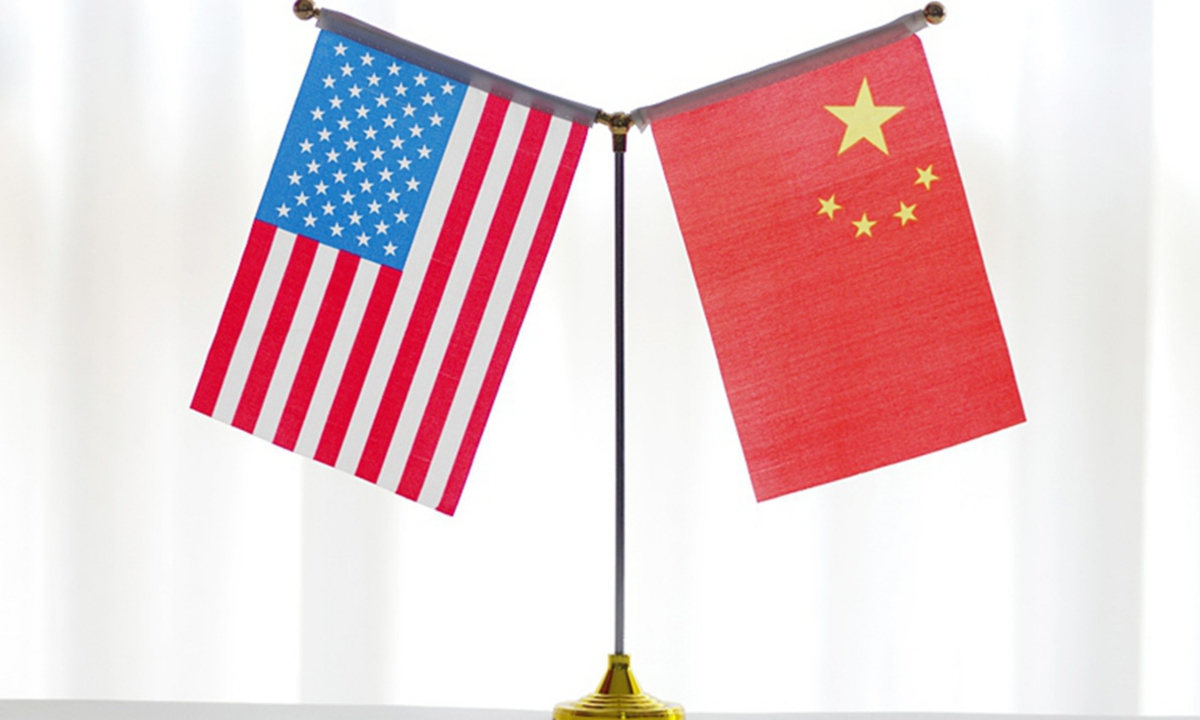
China US File Photo:CFP
Chinese Vice Foreign Minister Xie Feng held talks with US Assistant Secretary of State for East Asian and Pacific Affairs Daniel Kritenbrink, and Laura Rosenberger, senior director for China affairs of the White House National Security Council, in the city of Langfang, Hebei Province from December 11 to 12. The two sides held multifaceted and wide-covering discussion on implementing the consensus reached by the Chinese and US presidents in Bali, Indonesia, advancing consultations on the guiding principles of China-US relations, properly handling major sensitive issues in bilateral relations such as the Taiwan question, as well as the strengthening of exchanges at all levels, and cooperation in certain fields. Both sides agreed that the talks were frank, in-depth and constructive, and they will maintain communication.
It is the first high-level US delegation to Beijing since the leaders of the two countries pledged to make efforts to repair bilateral relations at the G20 Bali summit in November. According to the US State Department, the visit will also prepare for Secretary of State Antony Blinken's planned early 2023 trip to China. It can be said that China trip of Kritenbrink and Rosenberger are the most recent progress made by the two sides in following up and implementing the consensus reached by the two heads of state.
Although the US delegation's visit to China is considered to be more of a routine, it still makes the outside world have more positive expectations for repairing China-US relations, in order to "avoid any accident" amid escalating tense relations between the two major powers." Recently, China and the US held dialogues at different levels in the fields of the economy and trade, climate and military affairs. The interaction between the two sides based on the consensus of the heads of state is increasing. For the already freezing bilateral relations, this does convey some warm signals. In any case, dialogue is better than confrontation, and win-win is better than zero-sum. Therefore, we welcome the visit of the high-level US delegation and hope that this interaction will continue.
Meanwhile, we have also noticed that when US officials gave briefings before the delegation's visit to China, they intentionally or unintentionally created an atmosphere of public opinion that "China needs to engage with the US more." White House Indo-Pacific coordinator Kurt Campbell claimed last week that China wants stabilized relations with the US as it faces "domestic economic challenges." He also said that the "resumption of some of the more practical, predictable elements of great-power diplomacy" will be seen in the coming months, but "there is a degree of uncertainty." However, it's clear to all that it is US' anxiety about China and its hegemonic logic that make the bilateral relations less "practical" and less "predictable." The Chinese people have long been familiar with the trick of putting pressure on the Chinese side through public opinion before talks.
To be honest, Washington does not have a good credibility. We pay more attention to what it does than what it says. Just in the past few days, while Washington announced that it would "continue responsibly managing the competition between the two countries and to explore potential areas of cooperation," it continued to challenge China's core interests in areas such as the Taiwan question, supply chain restructuring, military affairs and human rights. The actions to suppress, siege and contain China have never stopped. This makes Washington purely "two-faced." In the past few years when China-US relations have declined sharply, Washington has been talking about "managing" divergences while constantly creating new differences. This is the biggest uncertainty in the bilateral relations.
China's principle in dealing with US ties has been consistent and stable, which is mutual respect, peaceful coexistence and win-win cooperation. The Chinese side has always sought cooperation and stability between the two countries with utmost sincerity, but will never make concessions on major issues of principle. At the same time, although China-US relationship is one of the most important bilateral relationships in the world, it by no means is whole of China's diplomacy. China's circle of friends is expanding, which, however, is not the result of competition with the US, but because China's development has substantively benefited the world. China's connection with the world is bound to become even closer. It's an irreversible trend of the times. Washington has always observed the changes of the world through the lens of competition with China, this will only make its road narrower.
It is hoped that the US delegation can accurately convey China's attitude back to Washington, which is that we welcome China-US cooperation, but will never accept "cooperation" aimed at weakening, containing and suppressing China. To that end, China is patient and confident. We also hope that officials in Washington can implement President Biden's commitments to China made in Bali. After all, dialogue and cooperation cannot be conducted before honesty and credibility can convince other people.



